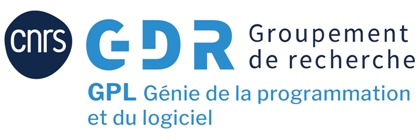Component systems are designed as sets of components that may reconfigure themselves according to adaptation policies. Adaptation policies are seen as artifacts that describe desirable behavior of the system without enforcing a specific one. An adaptation policy is designed as a set of rules that indicate, for a given set of configurations, which reconfiguration operations can be triggered, with fuzzy values representing their respective utility.
In this context, this presentation will present a model-based testing approach which aims to generate large test suites in order to measure the occurrences of reconfigurations and compare them to their utility values specified in the adaptation rules. This process is based on a usage model of the system used to stimulate the system and provoke reconfigurations. As the system may reconfigure dynamically, this online test generator observes the system responses and evolution in order to decide the next appropriate test step to perform. In the end, the relative frequencies of the reconfigurations are measured in order to determine if the adaptation policy is faithfully implemented. The approach is illustrated by simulations for platoons of (semi-)autonomous vehicles.
Note : Exposé en français avec un support en anglais
|
|
|
|
Online Testing of Dynamic Reconfigurations w.r.t. Adaptation Policies
1 : FEMTO-ST Institute
(FEMTO-ST)
-
Site web Université de Bourgogne-Franche-Comté, CNRS : UMR6174
16 route de Gray, Besançon -
France
|
| Personnes connectées : 25 | Vie privée |

|

 PDF version
PDF version